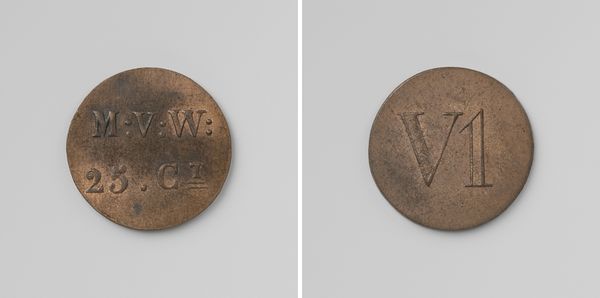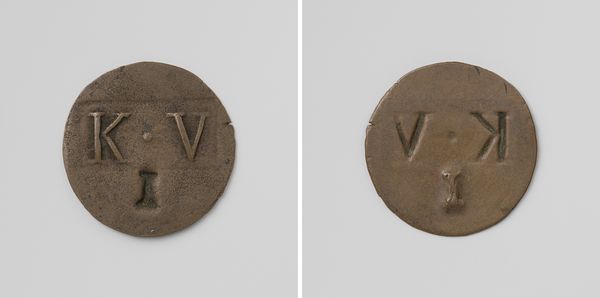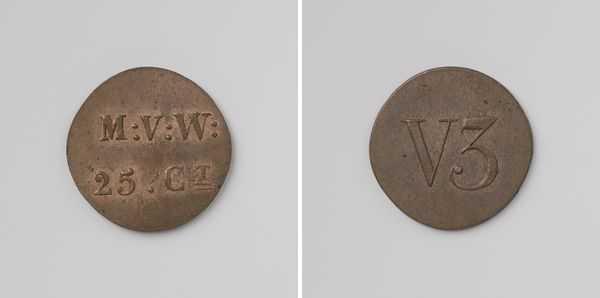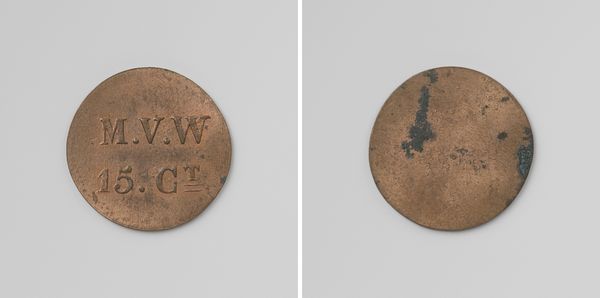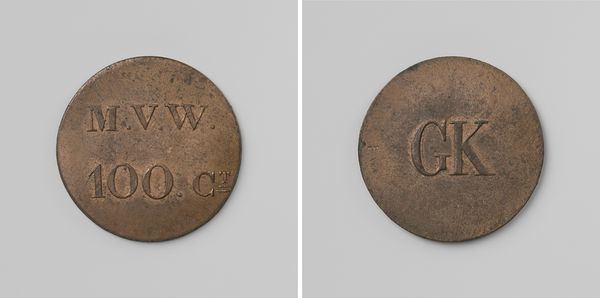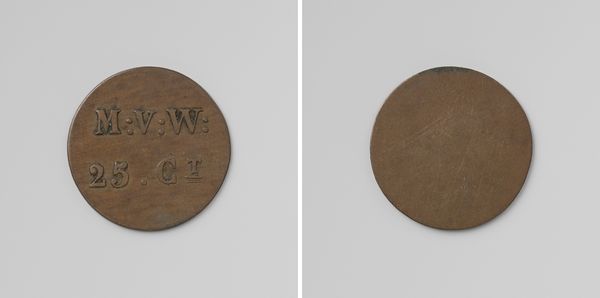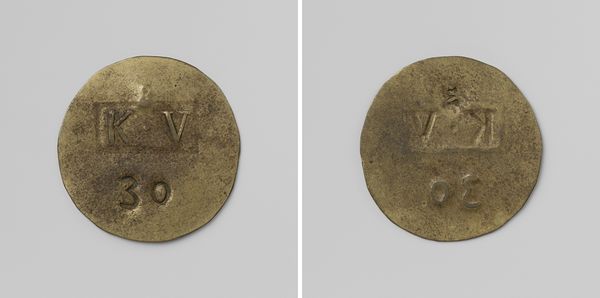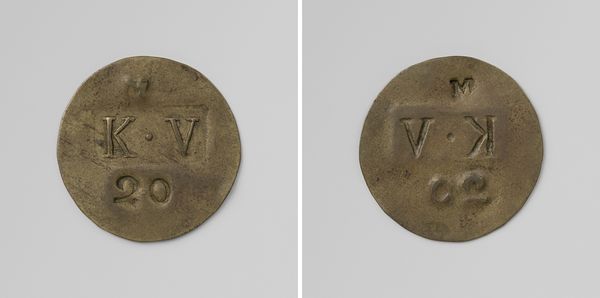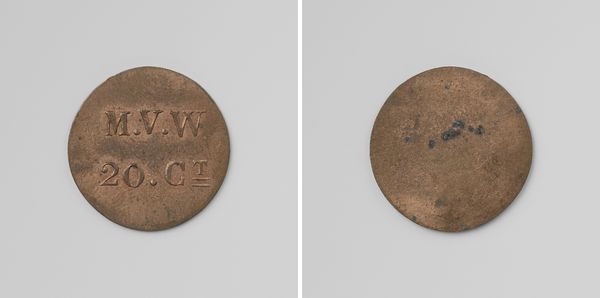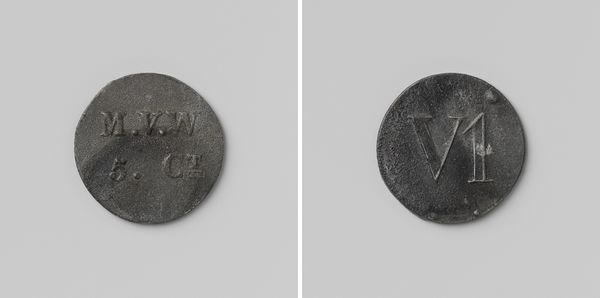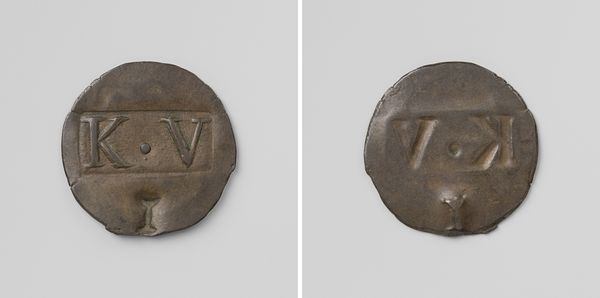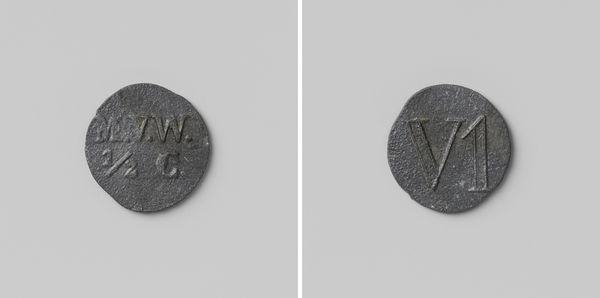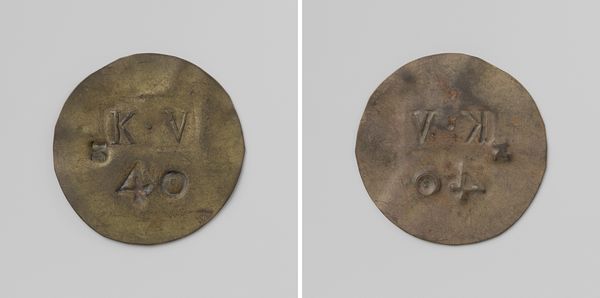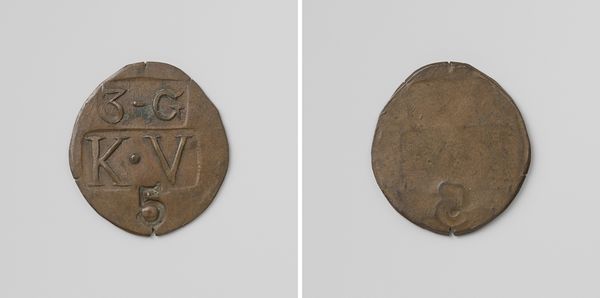
Derde gesticht van de strafkolonie Veenhuizen, huismunt geslagen op last van de Maatschappij van Weldadigheid ter waarde van 50 cent 1818 - 1859
0:00
0:00
anonymous
Rijksmuseum
print, metal
# print
#
metal
Dimensions: diameter 2.6 cm, weight 5.68 gr
Copyright: Rijks Museum: Open Domain
Editor: Here we have a rather humble-looking metal token titled "Third Establishment of the Penal Colony Veenhuizen: House Coin minted by order of the Society of Benevolence with a value of 50 cents," dating from between 1818 and 1859. It looks quite worn, and seeing this currency makes me wonder about the daily lives within the Veenhuizen penal colony. What can you tell us about the history of this object and its purpose? Curator: This seemingly simple coin speaks volumes about 19th-century social reform and control. The "Maatschappij van Weldadigheid" – Society of Benevolence – was an early attempt to address poverty through a combination of re-education, agricultural labor, and institutionalization. Veenhuizen, one of their "free" colonies, became, in effect, a penal colony. This coin was used internally. Its purpose was to replace real currency and therefore reduce theft and black-market activities. Editor: So it's like company scrip in a mining town? The Society saw it as benevolent, even if it feels, from our perspective, incredibly controlling? Curator: Exactly. Consider the societal context: rapid urbanization, industrialization, and growing poverty. The prevailing belief was that poverty stemmed from idleness and a lack of moral character. Institutions like Veenhuizen were designed to instill discipline, and hard work, supposedly rescuing people from themselves. Editor: It’s unsettling how these projects, with intentions to do good, can veer into controlling almost every aspect of a person's life. Curator: Precisely. These "benevolent" systems are fascinating. They show how societal anxieties around poverty and social order manifested. They show how social order and economics intersect within cultural systems. Studying something so simple such as this "House Coin", we must question, was this really welfare, or was it simply population control through another means? Editor: That definitely offers a stark perspective. I'll certainly be considering the complex nature of welfare policies going forward!
Comments
No comments
Be the first to comment and join the conversation on the ultimate creative platform.
